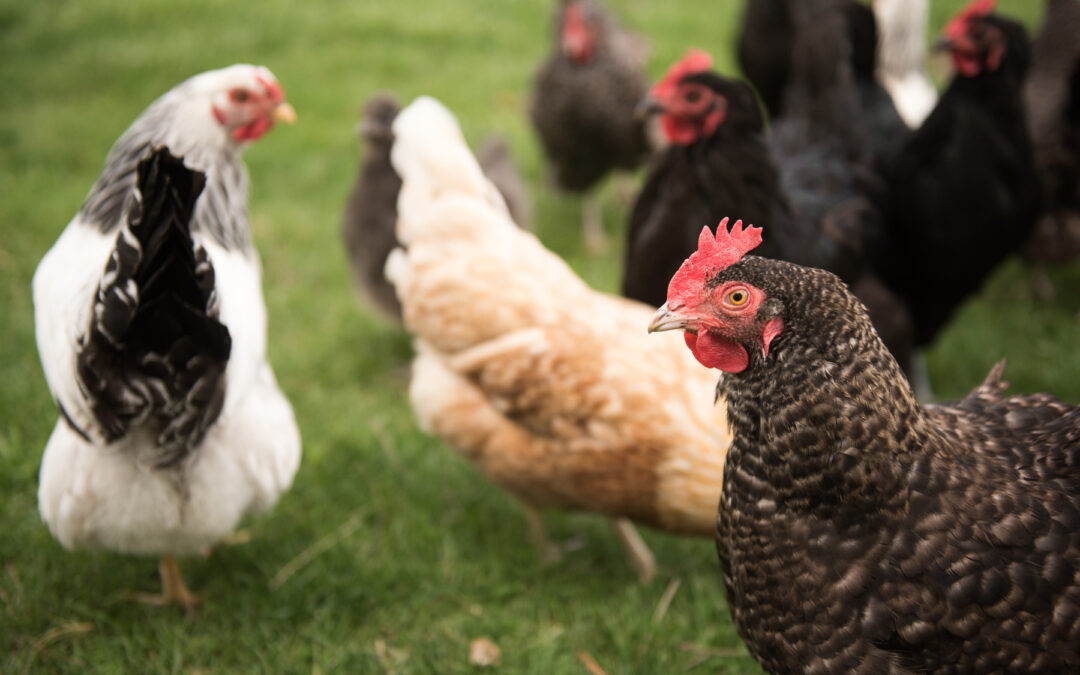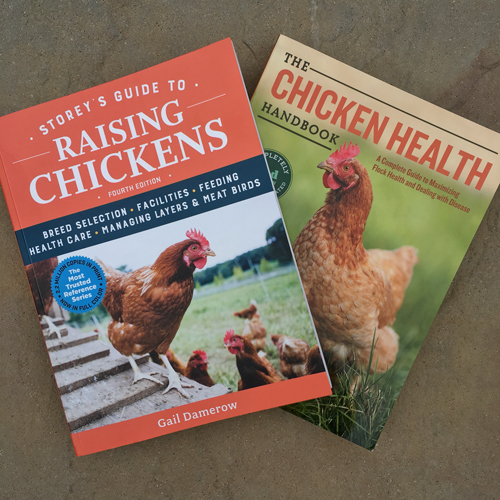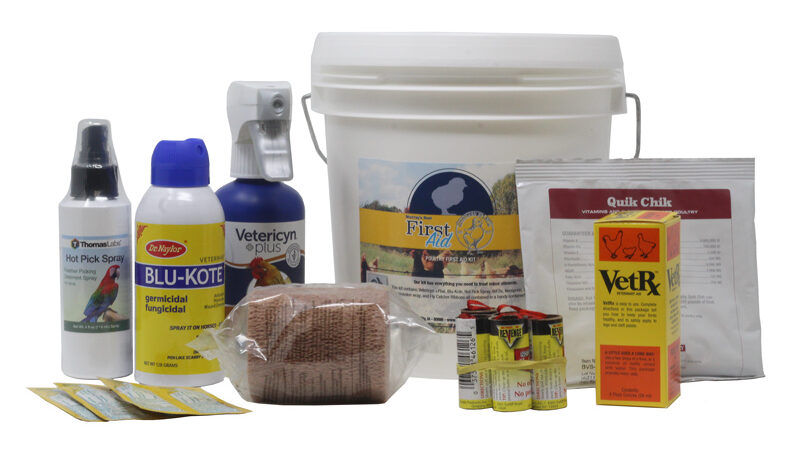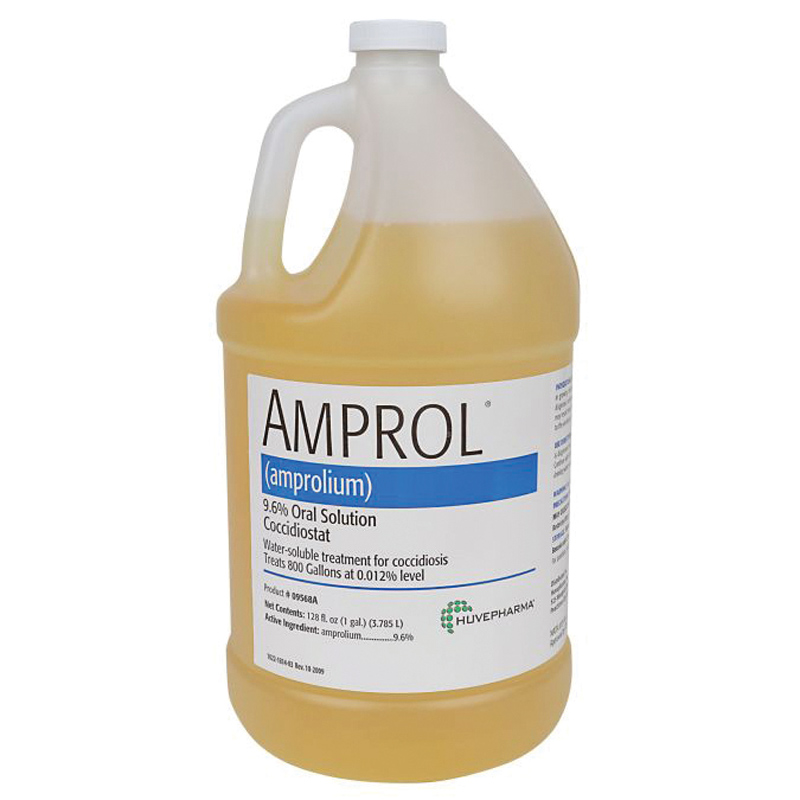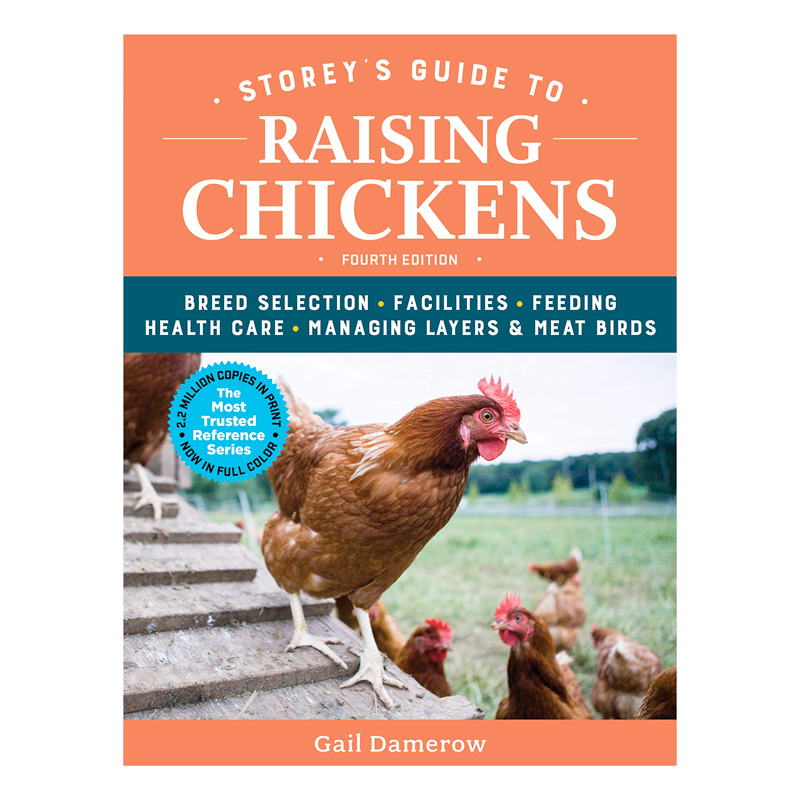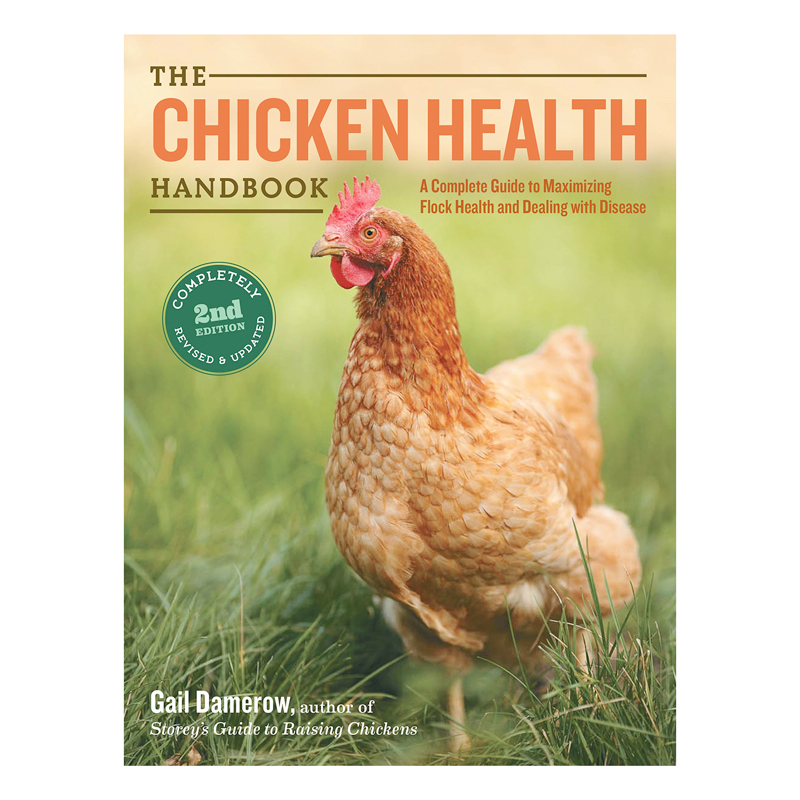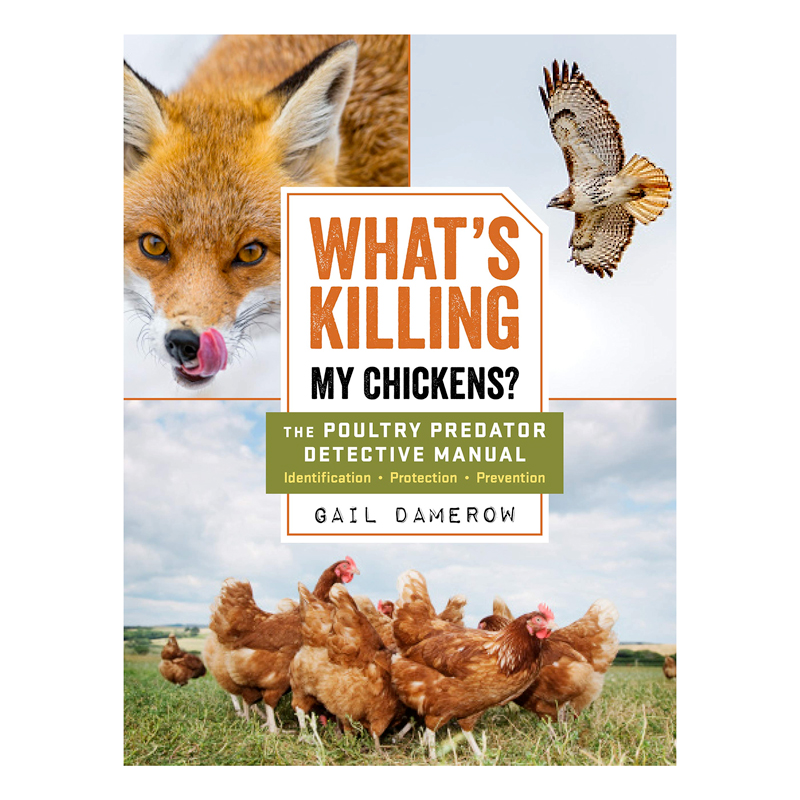So, how can you tell when a chicken is sick?
“Before you learn to recognize signs of illness, you first need to know what a healthy chicken looks like, behaves, and smells,” says Ms. Damerow. “Be observant whenever you take care of your flock.
“Each time you enter your coop or chicken yard, stand quietly for a moment to watch and listen for any type of change. It might involve an individual bird or the whole flock.
“For example, you might detect a change in the personality of one chicken and its desire (or ability) to interact with the rest of the flock. Or you might notice a change in the amount of feed or water the flock normally consumes, or how energetic they all are (or aren’t). Such changes are often the first signs of illness.”
What specific behaviors should a chicken keeper watch for?
“Activity, for one,” Ms. Damerow points out. “A healthy chicken is active, alert, and always busy. When a chicken is sick or isn’t feeling well, it may appear uninterested in engaging in normal chicken activities. It may not want to, or can’t, move and may prefer to stay off by itself.
“Posture is another important indicator. A healthy chicken walks erect, with its head and tail held high. An ailing chicken squats or hunches with ruffled feathers, its head hangs down or is tucked in, and its tail droops.”
What about changes in a chicken’s physical appearance?
“Some changes in appearance are clear signs of illness,” Ms. Damerow says. “For instance, the comb and wattles should be bright red. Pale comb and wattles can be an early sign of illness. Dark, swollen, or shriveled comb and wattles indicate serious illness.
“A chicken’s eyes should be bright and alert. An early warning sign is dull, watery, or partly closed eyes. A seriously ill chicken might have swollen or crusty eyes, and may keep its eyes closed most of the time.
“The cleanliness of the beak and nostrils can also indicate illness. Dirty, caked, or crusty nostrils are often signs of illness. The beak should be clean and closed most of the time. A constantly open beak indicates trouble.
“Nostril and beak issues are often accompanied by breathing problems. Normal breathing is quiet. Labored or noisy breathing are bad signs, as is outright gasping.
“A hen’s abdomen can also offer clues of illness. The abdomen should be firm, but not hard. A swollen, bulging, or hard abdomen means trouble.”
A moment ago, you referred to smell as a possible sign of illness. What’s that about?
“A change in the odor and appearance of a chicken’s droppings can signal disease,” Ms. Damerow explains. “Normal droppings should be firm and gray-brown with a white cap. Cecal droppings that are uniform in color and sticky are also normal. Runny, smelly, or off-color droppings could be signs of illness, or could mean the chicken ate something it shouldn’t have.
“To detect which chicken is having the problem, do a vent check. A chicken’s vent should be clean and only slightly moist. A chicken with runny droppings will have a stained vent and may have droppings sticking to the feathers below the vent.”
What should you do if you believe a chicken might be sick?
“When a chicken is sick, the first thing to do is isolate the bird away from the rest of the flock,” Ms. Damerow advises. “When doing chores, take care of the healthy chickens first, to avoid the possibility of spreading disease.
“Make sure the ailing chicken gets plenty of clean water and fresh feed. Since many diseases cause a chicken to eat less, feeding often can help stimulate appetite. Encourage drinking by furnishing cool water in summer and warm water in winter.”
What about providing treatment?
“Many illnesses that affect chickens have similar signs, but may require entirely different treatments.” Ms. Damerow points out. “Attempting to treat an ailing chicken without knowing exactly what’s wrong could make the problem worse.
“At this point you may wish to seek the advice of a veterinarian who has experience with poultry. In fact, it’s a good idea to identify a local vet who handles poultry and keep the number handy for when you might need it. If you can’t find a vet in your immediate area, you might find one through poultrydvm.com or other websites.
“Being prey animals, chickens instinctively avoid showing signs of weakness. So by the time you notice when a chicken is sick, it’s usually pretty far along. The longer you wait to take action, the more difficult treatment becomes.”
What’s the best way to prevent illness in the first place?
“The number one disease-prevention issue is to avoid bringing chickens into an existing flock that were raised somewhere else,” Ms. Damerow says. “Doing so creates a definite nightmare for biosecurity.
“If you absolutely can’t resist acquiring more chickens, at least isolate the new ones for a month. Feed them only after you’ve taken care of all your other chickens.
“To be doubly certain the new chickens aren’t carrying any diseases, house a couple of chickens from your existing flock with the ones in isolation. By the end of the month, if the old chickens remain healthy, chances are good the new chickens are equally healthy.”

Gail Damerow has been keeping chickens for nearly 50 years and has written several books about them including Storey's Guide to Raising Chickens, The Chicken Health Handbook, The Chicken Encyclopedia, Hatching and Brooding Your Own Chicks, and What's Killing My Chickens? For more about Ms. Damerow, visit her blog at GailDamerow.com.
Gail Damerow's headshot by The Chicken Chick, Kathy Shea Mormino.
Shop These Related Items
Featured photo courtesy of Teddi Yaeger.

